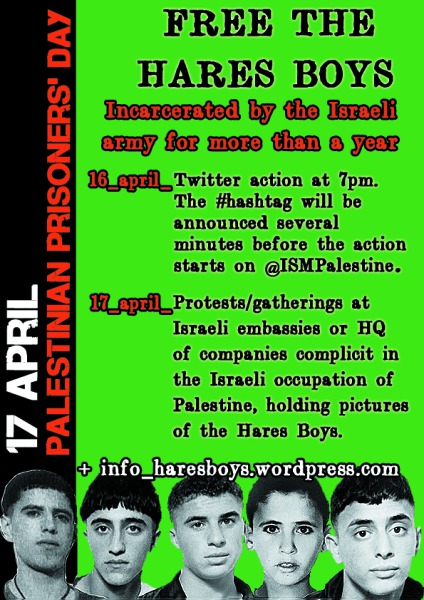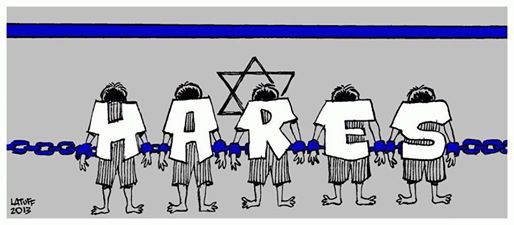Tag: Hares Boys
-
Support the Hares boys this Prisoners’ Day
14th April 2014 | International Solidarity Movement | Occupied Palestine 17th April, Palestinian Prisoners’ Day, is a global day of action. Join to demand justice for the Hares Boys, as well as all Palestinian children incarcerated by the Israeli military regime. What you can do: 1. Organise an Event – a sit-in, a demo, a protest, a silent dance,…
-
The fight for the freedom of the 5 Hares Boys continues
6th April 2014 | International Solidarity Movement, Nablus Team | Occupied Palestine In a conversation with Neimeh and Yaseen Shamlawi in their home in Hares we hear about the traumatic journey they have gone through but also the painstaking efforts they have made to build a campaign for their son’s freedom ever since he was arrested…
-
One year on: the Hares Boys
18th March 2014 | The Hares Boys | Occupied Palestine Yesterday the Hares Boys, who are being charged with 20 counts of attempted murder with no evidence whatsoever, have been in an Israeli prison for one year. Now is more important than ever to fully understand the circumstances surrounding the unlawful arrest and imprisonment of Mohammad Suleiman, Ammar…



